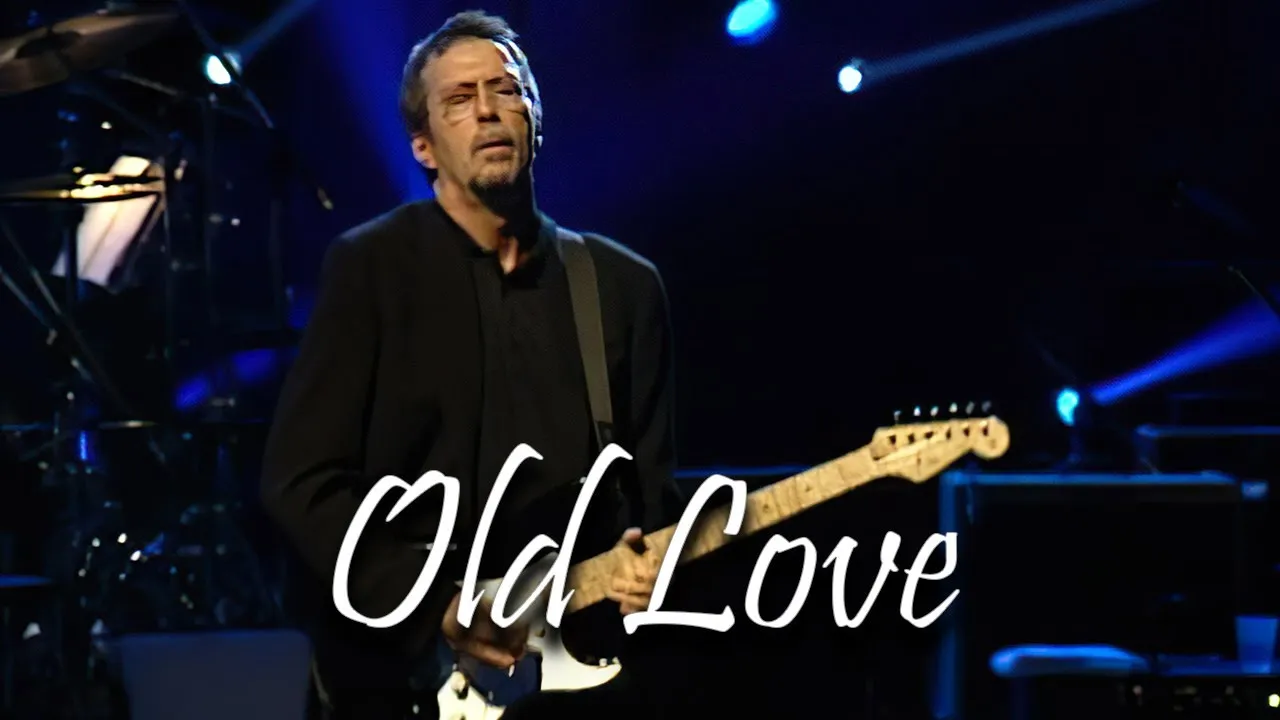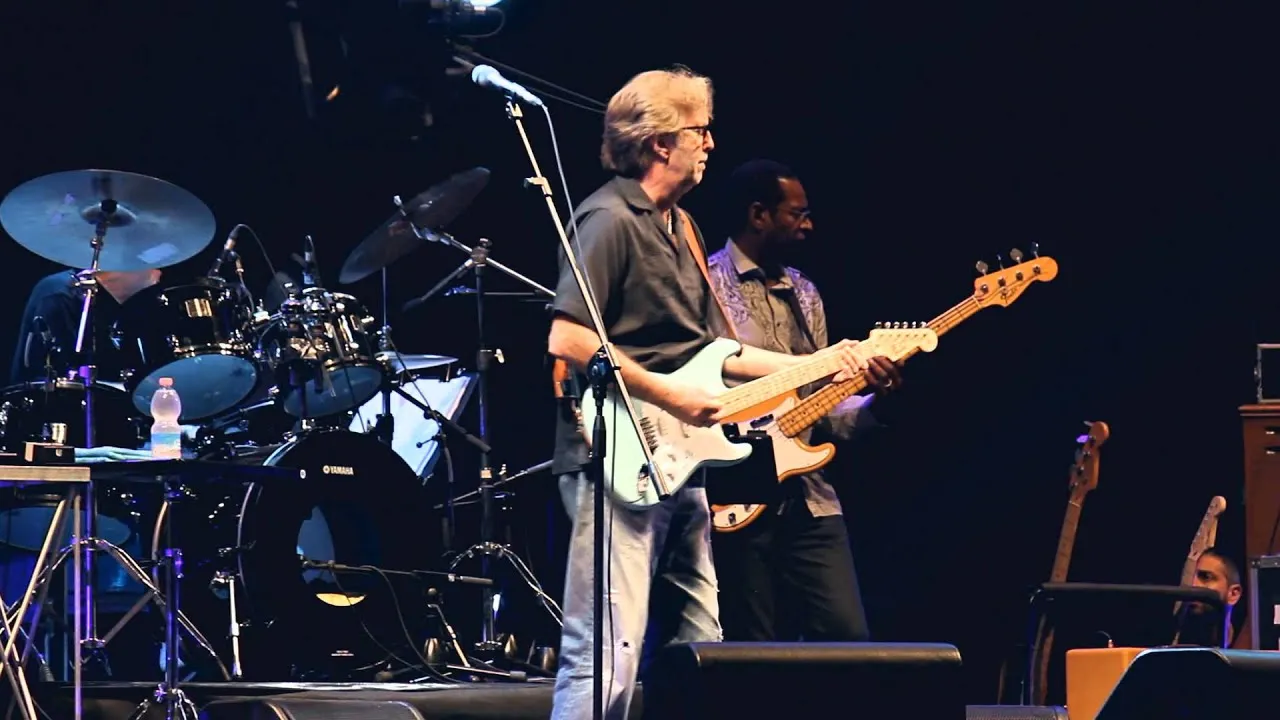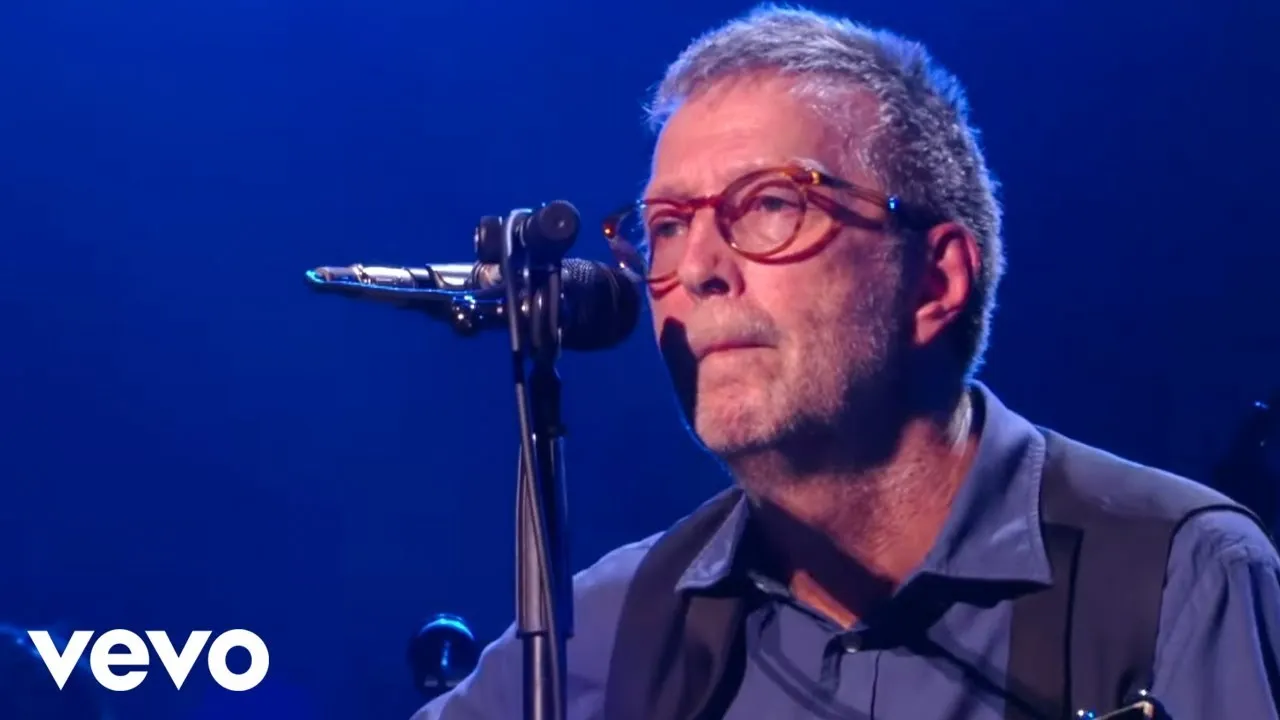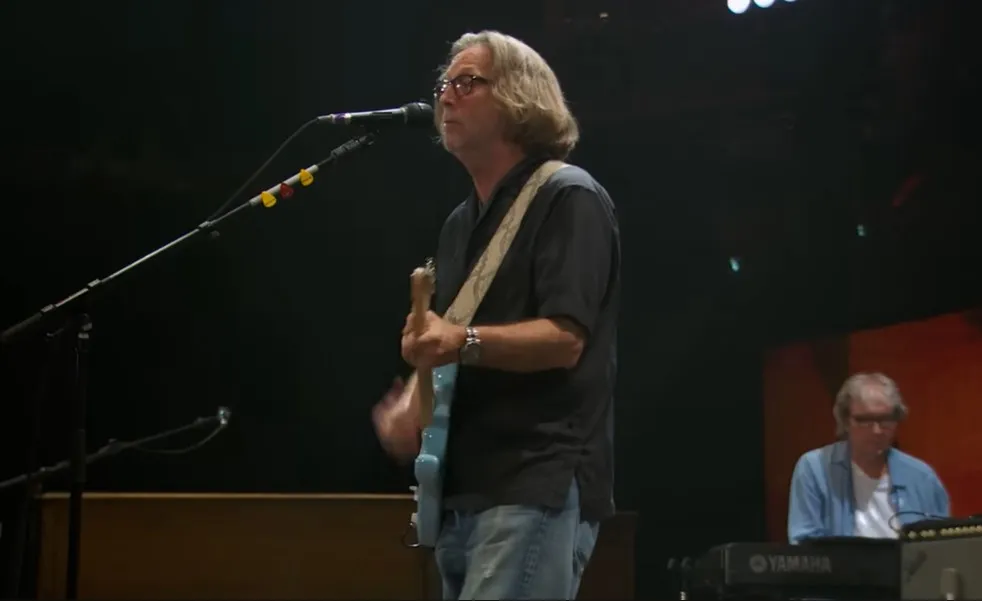About The Song
(Watch the video below)
"Knockin' on Heaven's Door" stands as one of the iconic songs in the annals of rock and folk music, bearing a legacy that transcends generations. Penned by the legendary Bob Dylan in 1973 for the soundtrack of the film "Pat Garrett and Billy the Kid," the song swiftly established itself as a timeless classic. However, it was Eric Clapton's rendition that etched the song into the collective consciousness of music aficionados worldwide.
Clapton's interpretation of "Knockin' on Heaven's Door" is an exercise in emotional depth and musical subtlety. Departing from Dylan's folk-rock roots, Clapton infused the song with his signature blues-inspired guitar work and soulful vocals, reshaping it into a haunting ballad that resonates with listeners on a visceral level.

At its core, "Knockin' on Heaven's Door" is a meditation on mortality and the universal experience of facing one's own mortality. The lyrics, with their plaintive refrain of "knock, knock, knockin' on heaven's door," evoke a sense of existential introspection and the inevitability of death. Yet, amid the somber reflection, there exists a glimmer of hope, a yearning for peace and transcendence beyond the veil of mortality.
Clapton's rendition of the song amplifies its emotional resonance through his masterful guitar playing and soulful delivery. His delicate strumming and emotive phrasing imbue each note with a sense of longing and introspection, drawing listeners into the song's emotional landscape. From the plaintive opening chords to the soaring guitar solos, Clapton's performance is a study in musical nuance and emotional authenticity.

One of the most striking aspects of Clapton's version is its simplicity. Eschewing ornate arrangements in favor of a stripped-down approach, Clapton allows the song's emotional core to shine through. The result is a raw and intimate portrayal of the human experience, rendered with a poignancy that lingers long after the final chord has faded.
Another defining feature of Clapton's rendition is its sense of universality. While rooted in his own personal experiences and emotions, Clapton's performance transcends individual narrative to speak to the shared human condition. Whether grappling with loss, seeking solace, or confronting existential questions, listeners find themselves drawn to the song's timeless themes and evocative imagery.
Of course, the context in which Clapton recorded "Knockin' on Heaven's Door" lends an added layer of poignancy to his performance. In 1991, Clapton tragically lost his four-year-old son, Conor, in a heartbreaking accident. It's impossible to divorce Clapton's rendition of the song from this personal tragedy, and indeed, his grief-infused performance resonates with a depth of emotion that is palpable.
In many ways, Clapton's rendition of "Knockin' on Heaven's Door" serves as a cathartic expression of his grief and longing for solace. Through music, Clapton finds a channel for his pain and sorrow, transforming them into something beautiful and transcendent. In doing so, he not only pays homage to Dylan's original composition but also creates a work of art that stands as a testament to the enduring power of music to heal and uplift the human spirit.

Beyond its emotional resonance, Clapton's rendition of "Knockin' on Heaven's Door" also showcases his virtuosity as a guitarist. His evocative solos, characterized by their soulful phrasing and melodic inventiveness, elevate the song to new heights of musical expression. Each note is imbued with a sense of urgency and passion, carrying listeners on a journey of introspection and catharsis.
In conclusion, "Knockin' on Heaven's Door" remains a timeless masterpiece of musical storytelling, its evocative lyrics and haunting melody speaking to the universal themes of life, death, and transcendence. Eric Clapton's rendition of the song stands as a testament to his artistry and emotional depth, offering listeners a glimpse into the depths of the human soul. Whether experienced in moments of joy or sorrow, "Knockin' on Heaven's Door" continues to resonate with audiences, its timeless message enduring through the passage of time.



